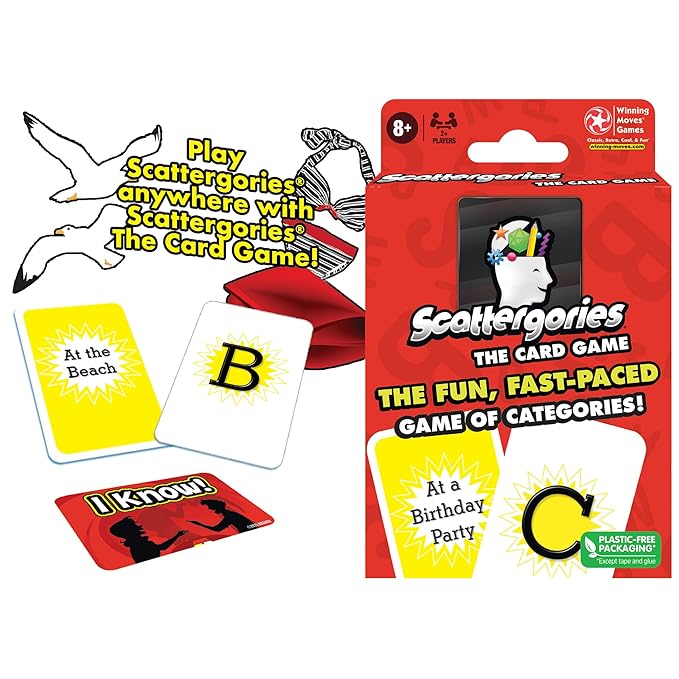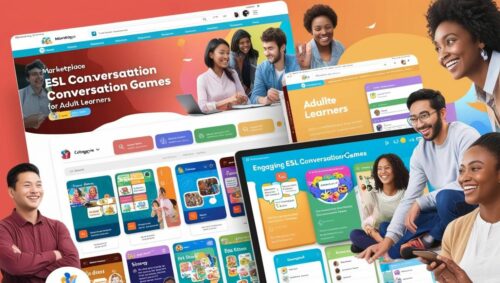There’s a massive boom in the world of ESL learners today, and it’s pretty wild to see how it’s reshaping the way we think about teaching English. With students from all corners of the globe eager to master the language, the challenge for ESL educators is real. It’s not just about grammar and vocab anymore; it’s about making sure lessons are lively and super engaging.

Many ESL teachers wrestle with keeping their students engaged, especially in classrooms where diversity in background and skills is the norm. We’ve all seen the blank stares when explaining complex grammar. It’s here where interactive conversation games come into the picture as absolute game-changers. They’re not just fun; they transform boring lessons into dynamic, immersive experiences.
Teachers who’ve poured their hearts into these conversation games have witnessed a notable boost in lesson effectiveness and student participation. Just a simple game can turn a passive study session into a vibrant hub of learning and laughter. And don’t just take my word for it; there are countless real-life stories of teachers who’ve thrown these games into the mix and seen their classrooms come alive.
Incorporating games into the lesson plan isn’t just a modern trend. It’s a bridge connecting educators with students in a language the students understand—fun. It’s about breaking down barriers, encouraging spoken language practice, and making sure everyone has a voice in the classroom. When learners are having fun, they’re more likely to open up and engage, leading to better language acquisition.
The benefits don’t stop at engagement. These games help teachers address various learning styles, whether students are visual, auditory, or hands-on learners. It’s about giving educators the tools to turn their classrooms into inclusive spaces where everyone, no matter their learning curve, can catch up and thrive.
Decoding an Online Marketplace: How It Bridges Educators and ESL Conversation Games
Finding the right resources for teaching can feel like a treasure hunt sometimes, especially when you’re trying to get your hands on quality ESL conversation games. Thankfully, online marketplaces are stepping up to bat, making it easier than ever for educators to access these vital teaching tools.
| Aspect | Details |
|---|---|
| Purpose | Provides a one-stop-shop for accessing curated ESL conversation games tailored to classroom needs. |
| Key Benefits | – Simplifies resource discovery. – Offers tailored, high-quality resources for ESL education. – Saves time by centralizing options. – Caters to diverse teaching preferences (digital and printable resources). |
| Features to Look For | – Easy navigation and reliable search functionality. – Detailed previews or trial options for resources. – Variety in formats (e.g., digital, printable). – User-friendly interfaces for busy educators. |
| Importance of Feedback | – Educator reviews and recommendations offer insights into quality and reliability. – Community feedback helps identify the best platforms and avoid subpar resources. |
| Flexibility | – Supports different teaching styles and classroom setups. – Provides resources adaptable to various lesson plans and learning goals. |
| Role in ESL Education | – Bridges gaps between material creators and educators. – Empowers teachers with tools to make language learning engaging and effective. |
So, what’s the big deal about an online marketplace for ESL resources? Well, it’s basically a one-stop-shop where teachers can browse, filter, and select games that suit their specific classroom needs. Instead of scouring the internet or relying on outdated resources, teachers can tap into a curated collection tailored for ESL education.
One of the coolest perks of these online platforms is their ability to adapt and cater to different teaching preferences. Whether you’re looking for digital games you can project onto a screen or printable activities you can hand out, a well-designed marketplace should have you covered. It’s all about making resources accessible and user-friendly for busy teachers.
Choosing the right marketplace is crucial. Ideally, you want a platform that keeps things straightforward, with easy navigation and reliable search features that save you time. Look for marketplaces that offer detailed previews or trial options so you can get a sneak peek before committing to download or purchase a game.
Listening to other educators’ experiences can also be a real eye-opener. Reviews and recommendations provide insights into which platforms deliver high-quality resources and which ones might fall short. Having that community feedback as a guide makes the process smoother and sometimes even more fun!
Online marketplaces are playing a pivotal role in the ESL world, bridging gaps between material creators and educators. They empower teachers with flexibility and diverse options, ensuring that they have the right tools to make language learning exciting and effective for their students.
Exploring the Variety: Types of ESL Conversation Games Available Online
The selection of ESL conversation games online is like a candy store for teachers, offering a mix of classic favorites and cutting-edge innovations. It’s all about finding what clicks with your students and keeps them buzzing with excitement.
| Category | Description |
|---|---|
| Interactive Group Activities | – Encourages teamwork and communication among students. – Promotes collaboration and enhances speaking skills in group settings. |
| Role-Playing Games | – Allows students to practice speaking in real-world contexts by stepping into different characters/situations. – Adds creativity and spontaneity to conversations. |
| Vocabulary-Building Games | – Focused on expanding vocabulary using methods like word association and memory games. – Helps students retain new words through engaging and repetitive practices. |
| Digital Games | – Highly interactive and tech-savvy, often providing instant feedback. – Appeals to students who are comfortable with technology. – Ideal for online or blended learning environments. |
| Printable Resources | – Flexible and suitable for offline practice or when technology isn’t available. – Easy to integrate into various lesson plans. |
| Technology-Enhanced Games | – Incorporates modern tools like virtual reality (VR) or augmented reality (AR) for immersive learning. – Boosts engagement by creating exciting, interactive experiences. |
| Mix-and-Match Approach | – Encourages experimenting with different game types to find the best fit for classroom dynamics. – Keeps lessons fresh and caters to diverse student needs and preferences. |
Interactive group activities are a big hit because they encourage teamwork and communication in ways that solo assignments can’t match. Role-playing games where students can step into different characters or situations also spice things up, allowing them to practice speaking in real-world contexts.
1. Find Someone Who
- How It Works: Create a list of prompts related to students’ experiences or preferences (e.g., “Find someone who has traveled to another country” or “Find someone who likes spicy food”). Each student must move around the room, asking classmates questions to find someone who matches each prompt.
- Why It’s Effective: Encourages students to practice question formation and answers while interacting with multiple classmates.
- Adaptation Ideas: Use a digital platform like Google Forms or interactive apps for online classes.
2. Role-Playing Scenarios
- How It Works: Assign students specific roles in everyday scenarios (e.g., customer and shopkeeper, doctor and patient). Students act out the situation while using relevant vocabulary and phrases.
- Why It’s Effective: Helps students practice conversational English in real-life contexts and boosts confidence.
- Adaptation Ideas: Incorporate props or use breakout rooms in virtual classes for small group role-playing.
3. Speed Dating Conversations
- How It Works: Arrange students in two rows facing each other. Provide a topic or question for discussion (e.g., “What’s your favorite holiday and why?”). After a set time (1-2 minutes), one row shifts to the next partner, and the conversation continues with a new question.
- Why It’s Effective: Maximizes speaking opportunities and exposes students to various speaking styles and accents.
- Adaptation Ideas: Use video conferencing breakout rooms for online classes, pairing students randomly.
When it comes to building vocabulary, there are games crafted specifically for that purpose. These games often use engaging methods like word association or memory mechanics to help new words stick.
1. Scrabble
- How It Works: Players take turns creating words on a board using letter tiles with assigned point values. Words must connect to existing ones, and players aim for high-scoring combinations.
- Why It’s Effective: Enhances vocabulary, spelling, and strategic thinking while encouraging students to explore new words.
- Where to Buy: Available on Amazon or major retail stores like Target or Walmart.
- Adaptation Ideas: Use a simplified version for beginners or a digital version (e.g., Words With Friends) for online learners.
2. Bananagrams
- How It Works: Players race to create their own crossword grid using letter tiles. Once a player uses all their tiles, they shout “Banana!” to end the round.
- Why It’s Effective: Improves vocabulary, spelling, and speed. The fast-paced nature keeps students engaged and focused on word creation.
- Where to Buy: Available on Bananagrams’ official website or retailers like Amazon and Walmart.
- Adaptation Ideas: Adjust difficulty by limiting the types of words (e.g., nouns, verbs) or allowing team play for collaboration.
3. Scattergories

- How It Works: Players roll a letter die and then list words in specific categories (e.g., food, animals) that begin with the chosen letter. Points are awarded for unique answers.
- Why It’s Effective: Encourages creative thinking and vocabulary recall in various categories.
- Where to Buy: Purchase on Hasbro’s website or online retailers like Amazon.
- Adaptation Ideas: Customize categories to focus on ESL-friendly topics (e.g., hobbies, classroom objects). For virtual classes, use an online Scattergories generator.
Deciding between digital games and printable resources can be tricky. Digital games often captivate tech-savvy students, offering interactive elements and instant feedback. Printable resources, though, provide flexibility and are terrific for offline practice or when tech isn’t available.
Some games even leverage modern technology, bringing interactive tools like virtual reality or augmented reality into play. These tech-savvy options push engagement to a whole new level, offering immersive learning experiences that are also a blast to participate in.
With so many variations of games, there’s really something for everyone. The key is experimenting and mixing things up until you find the blend that works best for your unique classroom dynamic.
E-E-A-T Assessment: Ensuring Quality, Reliability, and Trust in ESL Educational Resources
When hunting for ESL conversation games online, it’s super important to sift through options with a keen eye for quality. Not every game out there is up to scratch, and teachers definitely want to ensure they’re bringing reliable tools into their classrooms.

To kick things off, keep an eye out for resources that align with educational standards. The games should be more than just entertaining; they should also facilitate real learning. That means checking if they’re tailored to the appropriate language levels and objectives.
Next up is sourcing from reliable creators. Games developed by experienced educators or companies known for their educational tools are generally a safer bet. You want resources crafted by folks who genuinely know their stuff and understand the intricacies of teaching English to non-native speakers.
Making sure these games stay updated with evolving language trends and new educational insights is another angle to consider. Outdated content can leave students behind, so it’s beneficial when a resource is refreshed and in tune with the latest in ESL education.
For teachers wanting a bit of extra assurance, verifying the game’s quality through samples or trial periods offered by marketplaces is a great strategy. These previews can help you gauge the practicality and engagement level of the games before you fully integrate them into your lessons.
At the heart of all this is the need to build a trustworthy set of tools that genuinely enhance language learning, allowing students to grow their skills in a way that’s as effective as it is enjoyable.
Success Stories: Real-World Impact of ESL Conversation Games in Classrooms
There’s something special about seeing ESL conversation games light up a classroom. Teachers across the globe have shared remarkable success stories, highlighting just how transformative these games can be.
One standout impact is the boost in confidence seen in students. When learners feel more at ease engaging in playful activities rather than being put on the spot, their willingness to participate skyrockets. Fear of making mistakes fades away as students immerse themselves in the fun of the moment.
Feedback from learners often echoes a common theme: games make learning less of a chore and more of an adventure. Students have reported improvements in not just their language skills but also in their enthusiasm for attending classes. Parent and teacher testimonials frequently point to noticeable improvements in student engagement and motivation.
In some classrooms, the introduction of conversation games has significantly altered the dynamics between teachers and students. Games often facilitate a more collaborative environment, where everyone gets the chance to share ideas and practice English in a low-pressure setting.
Keeping things fresh is key. Successful integration of games means continually exploring new formats and challenges that keep learners on their toes. Teachers have found that rotating games and introducing new ones regularly helps maintain interest and drive deeper learning outcomes.
These real-world examples underscore the potency of conversation games as essential tools in the modern ESL teaching arsenal. It’s about more than just filling time—it’s about sparking curiosity, empowering students, and fostering a love for language that goes beyond traditional teaching methods.
Leave comments and questions in the space below.




This is such a fascinating take on the role of ESL conversation games in modern classrooms! One question that comes to mind is: how do you balance integrating these games with covering essential grammar and vocabulary topics in limited class time?
From my own experience teaching ESL, role-playing games have been particularly effective. I once used a “job interview” scenario, and it was amazing to see how much confidence my students gained in such a short time.
In my opinion, platforms offering digital and printable resources are game-changers. They cater to different teaching styles, which is crucial for diverse classrooms. I’d love to hear more about specific online marketplaces you recommend for finding these high-quality conversation games. Any favorites?
Hi Herman, thanks for your comments. About 90% of the time, I stick to a pretty regular routine-fundamentals. Sometimes, I think it’s important to change things up a little. Most of the games I play are embedded or natural components to the lessons. Burlington English has them embedded into their curriculum. I also use Quizlet and Kahoot a lot. The games in the article are games I use sparingly and I encourage the students to play them at home.
KBob